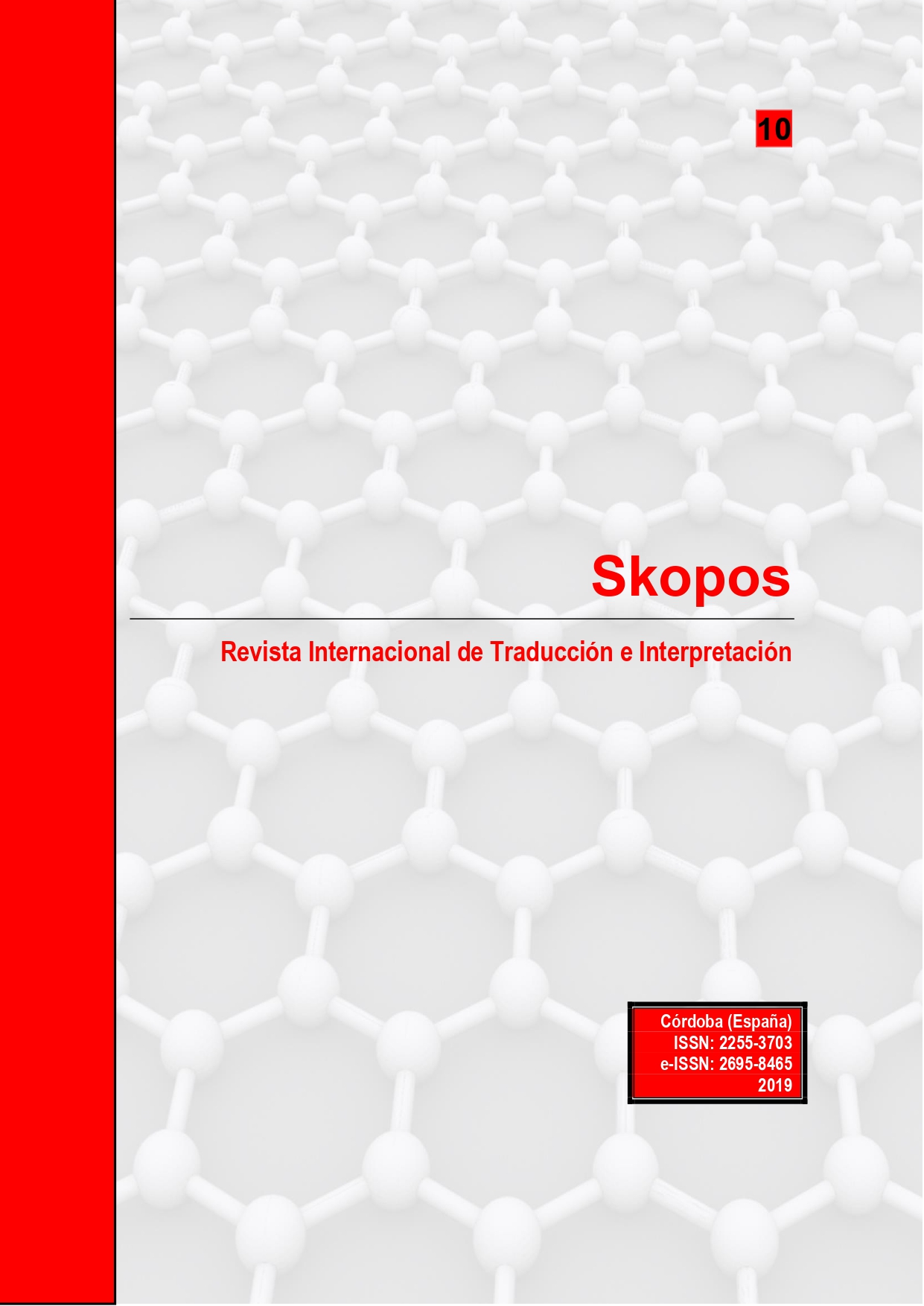Roles sintáctico-semánticos de la "Nueva Mujer": Lyndall en The Story of an African Farm
DOI:
https://doi.org/10.21071/skopos.v10i.12760Abstract
Although the author of The Story of an African Farm (1883), Olive Schreiner, followed the conventions of her time and even published her work under a masculine pseudonym, Lyndall, its protagonist, breaks with the traditional stereotypes faced by 19th c. women; she is a transgressor in issues such as marriage, sex or motherhood. For this reason, the work was described as subversive, and even blasphemous. Following a functionalist transitivity analysis (Halliday, [1985] 1994, 2014), this paper analyzes the semantic roles played by women in Lyndall's speech, both in the original English text, and in our own translation into Spanish. It is essential to appreciate the communicative value of these roles in order to fully reflect them in the translated text.
Downloads
Published
How to Cite
Issue
Section
License
Política propuesta para revistas que ofrecen acceso abierto. Aquellos autores/as que tengan publicaciones con esta revista, aceptan los términos siguientes:
- Los autores/as conservarán sus derechos de autor y garantizarán a la revista el derecho de primera publicación de su obra, el cuál estará simultáneamente sujeto a la Licencia de reconocimiento de Creative Commons que permite a terceros compartir la obra siempre que se indique su autor y su primera publicación esta revista.
- Los autores/as podrán adoptar otros acuerdos de licencia no exclusiva de distribución de la versión de la obra publicada (p. ej.: depositarla en un archivo telemático institucional o publicarla en un volumen monográfico) siempre que se indique la publicación inicial en esta revista.
- Se permite y recomienda a los autores/as difundir su obra a través de Internet (p. ej.: en archivos telemáticos institucionales o en su página web) antes y durante el proceso de envío, lo cual puede producir intercambios interesantes y aumentar las citas de la obra publicada. (Véase El efecto del acceso abierto).






